The Best Natural Sleep Aids
Getting enough sleep is incredibly important for your health. Unfortunately, the quality of sleep is at an all-time low. If you require a little extra help to get a night of good sleep, consider trying the following 16 natural sleep aids.
Being able to get enough sleep is also beneficial for your physical and mental health. Sleep can help improve your memory and creativity. What’s more, getting insufficient sleep has been linked to a higher risk of conditions such as heart disease, diabetes, and obesity.
Despite the quality of sleep, more people are experiencing poor sleep quality. Over 35% of Americans said they typically get less than seven hours of sleep a night. In recent years, 20% of adults are also turned their attention to natural sleep aids due to their low quality.
Aside from sleeping pills, many people also use natural sleep aids. According to a study, 1 in 5 Americans has tried a natural sleep aid in the past 12 months. However, since the FDA (U.S. Food and Drug Administration) doesn't review the safety and effectiveness of all-natural sleep aids, finding the most effective one can be challenging.
See also: Healthy Sleep Tips
Good sleep can often be achieved by following a few simple steps. However, for some, it’s not enough. If you require a little extra help to get a good night’s sleep, consider trying the following natural sleep aids.
Although many health supplements are natural, they should not be taken by people who are allergic to the product, have certain conditions, or take certain drugs. Consult your doctor about any potential interactions between any herb you’d like to use and any medical conditions you have or medications you’re taking.
What Are Natural Sleep Aids?
Natural sleep aids are supplements that contain a variety of nutrients and chemicals that can help keep you up and asleep. They're usually plant-based and contain a mineral, vitamin. Or they're supplemental amounts of something produced by the body.
Natural sleep supplements are more effective than drugs for treating sleep problems. They also have fewer side effects than traditional sleep medications. They also appeal to people who prefer natural products or are concerned about the addictive potential of prescription sleep aids.
Sleep Aids That May Help You Get Some Shut-Eye
Good sleep can often be achieved by following a few simple steps. However, for some, it’s not enough. If you require a little extra help to get a good night’s sleep, consider trying the following natural sleep aids.
Melatonin
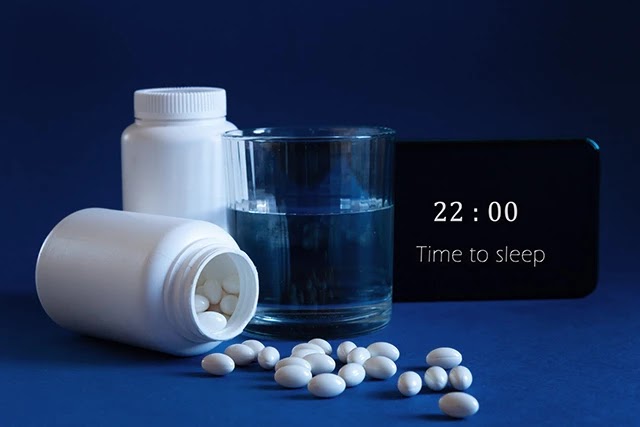 |
| Melatonin controls your circadian rhythms. Supplemental melatonin may help you to fall asleep faster and boost the quality of your sleep. |
Time of day influences this hormone’s cycle of production and release — melatonin levels naturally rise in the evening and fall in the morning. Melatonin is a natural hormone that your body produces. It helps to maintain a healthy circadian rhythm. Melatonin may also, help relieve symptoms of jet lag, boost immunity and fight inflammation.
Various factors can suppress the production of melatonin, such as night-time exposure to light and aging. People with low melatonin levels tend to experience sleep disturbances and are prone to diseases.
Is Melatonin Safe?
Melatonin can be produced in various forms, such as synthetically and ingested as a supplement. Most people do not experience the effects of taking melatonin when taking it. Melatonin is not considered a safe supplement for older adults with dementia.
In children, melatonin is generally considered to be safe when used in the short term and under the guidance of a doctor.
What Is the Proper Way to Take Melatonin?
Before bed, take 1 to 5 milligrams. It's important to note that this treatment should be used for at least two weeks to prevent sleep problems. If your sleep troubles persist after two weeks of use, you should consult your doctor.
Side Effects of Melatonin: What Are the Risks?
When side effects do occur, the most common are daytime sleepiness, headaches, and dizziness. Melatonin may cause, wakefulness in the night, depression, grogginess, irritability, stomach cramps. You should discontinue use if you begin experiencing any unusual symptoms. If these symptoms persist, consult your doctor.
How Can You Find Safe Natural Sleep Aids?
In the United States, melatonin is available as an over-the-counter (OTC) sleep aid. You can find it at the drugstore or grocery store.
Valerian
The valerian plant has been used to treat sleep problems since the 2nd century. Taking valerian can improve a person's sleep quality and wake up less often. In some studies, patients taking valerian were 80% more likely to report sleep improvements than those taking a placebo. Though further research needs to be done, valerian can interact with some medications, so you should consult your doctor before use.
How Much Valerian Can You Take?
Its smell has been compared to gym socks. Valerian works well with other herbs such as lemon balm, and hops. It can be taken as tea or in capsule form. If you drink valerian root as a tea, you may take 1/4 to 1 teaspoon up to three times per day. If you prefer to take it in capsule form, you should follow the dosage recommended on the label. You should gradually reduce your dose until you reach a safe and comfortable stopping.
Is Valerian Safe to Take?
Despite the lack of objective measurements behind valerian, adults may consider testing it out for themselves. However, safety remains uncertain for use long term and in special populations such as pregnant or lactating women. You shouldn’t use valerian if you experience any unusual symptoms. Consult your doctor if your symptoms persist.
Lavender
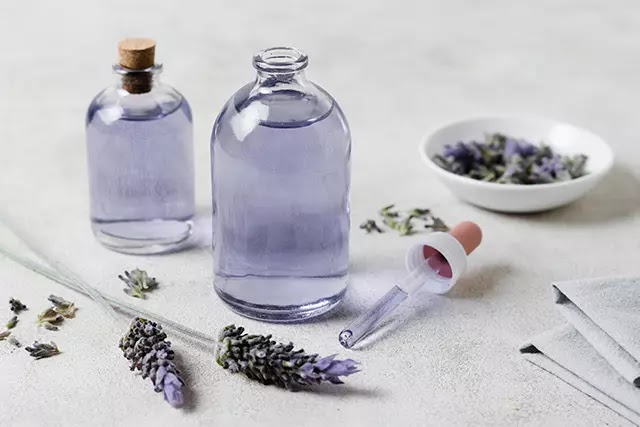 |
| A popular fragrant herb, lavender has long been thought to aid relaxation and improve sleep. |
The lavender plant can be found in different parts of the world. It produces purple flowers that are dried and can be used for various purposes. Its scent can also be used to enhance sleep.
Studies suggest that inhaling lavender oil before sleeping can improve a person's sleep quality. This effect is most likely to benefit individuals with mild insomnia.
Lavender essential oil can help improve sleep disturbance symptoms in older people with dementia. A small study found that using the lavender essential oil can also help people get back to sleep.
A study gave people with anxiety disorder 80 milligrams of lavender oil daily. At the end of the 10-week study, the participants experienced improvements in their quality and duration of sleep.
Can Breathing Lavender Essential Oils Be Harmful?
Although it is considered safe to use, the use of lavender oil has been linked to nausea and vomiting. This is because the oil is not intended for ingestion. Essential oils are intended for aromatherapy and not oral ingestion. It’s also worth noting that only a limited number of studies could be found on the effects of lavender supplements on sleep. However, if you have a lung condition, hold up. Breathing in the particles released by the oils may trigger airway inflammation and asthma symptoms. More studies on lavender supplements are needed to evaluate their efficacy and safety
Ginseng
Red ginseng extract has been known to improve sleep quality and immunity. A study revealed that individuals with sleep problems experienced a better night's sleep after taking the herb for a week.
How Much Ginseng Is Safe Daily?
It's usually recommended that you take around 800 milligrams of powdered ginseng each day. You can also mix up to 10 drops of tincture three times a day.
What Are the Side Effects of Ginseng?
Effects of ginseng include nausea, stomach upset, agitation, heart problems, dizziness, and headaches. You should discontinue use if you begin experiencing any unusual symptoms. If you still experience symptoms after discontinuing use, consult your doctor.
Chamomile
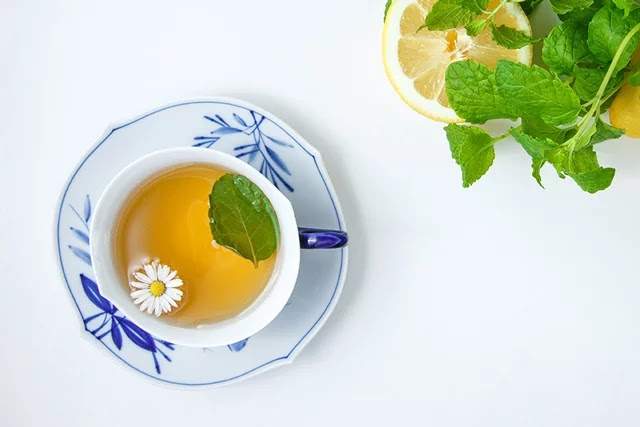 |
| Chamomile is a gentle herb that has a calming effect. It promotes relaxation and sleep. |
It can help improve sleep and relaxation. A study found that chamomile tea can improve the quality of sleep in women. It can also help with depression symptoms.
How to Use Chamomile?
Although there isn’t a typical dose for chamomile, you can use it a few ways:
- Use dried chamomile flowers to make tea
- Inhale or apply diluted chamomile essential oil to your skin
- Steep prepared tea bags sold at your local grocery store
- Take in tablet or capsule form
- Apply as a topical plant tincture
Is Chamomile Tea Safe Daily?
Chamomile tea can be enjoyed any time of day, it can be best used in the evening for its potential sleep benefits.
Who Should not Use Chamomile?
The use of chamomile should not be used for pregnant or nursing mothers, children, or those with kidney or liver disease.
Does Chamomile Have Side Effects?
Chamomile has rare side effects, such as nausea and dizziness. They can also be triggered by certain drugs and toxins. Allergic reactions to other plants can also occur. Discontinue use if you begin experiencing any unusual symptoms. If your symptoms continue, consult your doctor.
Magnesium
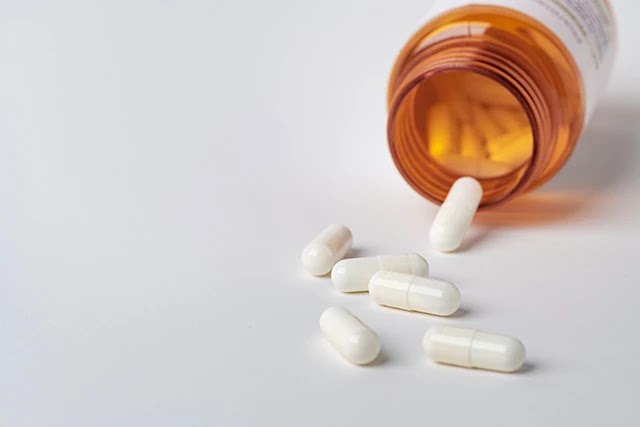 |
| Magnesium supplements are also available in pills and tablets, including multivitamins. |
Although magnesium is naturally present in food, it is also found in processed and bottled food. It has been known to improve sleep regulation and reduce daytime sleepiness in older adults.
Since many fruits and vegetables have high levels of magnesium, it is easy to take magnesium supplements when eating them. High levels of magnesium are available in foods like pumpkin seeds. Magnesium supplements are also available in pills and tablets, including multivitamins.
Are Magnesium Supplements Safe?
Although magnesium is generally safe to take at ordinary dietary levels, high doses can cause various side effects. Since the kidneys filter it out, very large amounts can side effects like diarrhea, nausea, and abdominal cramping.
Cherry Juice
Cherry juice can raise the levels of melatonin, which is a hormone that helps us fall asleep. It can also increase the availability of an amino acid known as tryptophan, which can help us fall asleep. These are promising findings, and tart cherry juice may improve sleep quality and make it easier to fall asleep. The cherry juice, which can be very sour, is usually diluted in a small amount of water before drinking.
Passionflower
 |
| Passionflower extracts and tea supplement shows potential benefits for anxiety and insomnia. |
The passionflower vine is native to the Americas. Passionflower is known to improve sleep quality. They’re also currently cultivated in Europe, Asia, Africa, and Australia.
Studies have shown that Passionflower can promote sleep in animals. However, its effects on humans are still unclear.
Passionflower extract and tea are both commonly used. While there is no definite proof that these supplements can improve sleep or anxiety, they have been shown to have some potential benefits.
Is Passionflower Safe to Drink?
Despite the lack of research on its safety, passionflower has been safely used in long-term studies. Its effects are usually mild and can be avoided with the proper doses. Pregnant women should not use passionflower, as it can induce uterine contractions. There is limited research into its safety while breastfeeding.
Ginkgo Biloba Leaves
 |
| Supplements made from ginkgo biloba leaves are usually safe to take. |
It has been known that the leaves of the ginkgo biloba can improve sleep. However, further studies indicate that it doesn't have the same effect on sleep as sleeping pills.
Ginkgo Biloba: Risks and Benefits
Ginkgo biloba leaves are used as dietary supplements. For most people, ginkgo leaf extract appears to be safe when taken by mouth in moderate amounts. However, they can cause various health problems, including dizziness and stomach upsets. Ginkgo biloba leaves may interact with other drugs, and there are concerns about its safety for pregnant women.
Magnolia Bark
Magnolia bark is a powerful antioxidant and anti-inflammatory agent that's found in the houpo magnolia tree. Magnolia bark supplement, helping to lower anxiety and depression and reduce stress. Magnolia bark can also act as a sedative, directly helping to facilitate sleep.
Is Magnolia Bark Safe to Take Daily?
The bark of the magnolia tree has been used for thousands of years in traditional Chinese medicine to treat conditions such as asthma and depression. It is also considered safe to use if taken by mouth.
What Are the Risks of Taking Magnolia Bark Extract?
If you are pregnant or taking medication that can treat anxiety or sleep, avoid taking magnolia bark during pregnancy. Also, take these medications with caution.
Kava
Kava is a plant that can be found in the Pacific islands. Kava is another plant that’s been linked to sleep-promoting effects in some studies. It has been known to reduce anxiety, but it doesn't provide a direct benefit to sleep.
What Are the Side Effects of Kava?
Some kava users have developed liver injuries that can be life-threatening. It can also cause nausea and stomach pain. Proceed with extra caution before using kava. Only buy supplements that have been certified by a reputable third-party organization.
Hops
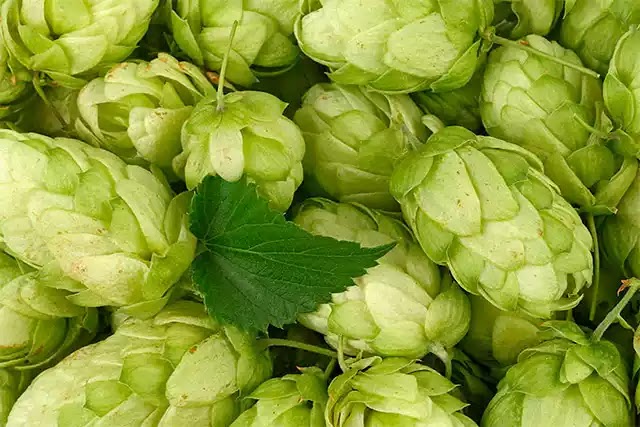 |
| Hops supplements can help stabilize circadian rhythms. The flowers of the hops plant are used by some people as a natural sleep aid. |
Hops are the flowers of the hop plant, and they are used to flavor beverages. They have been known to improve sleep. Hops can be combined with other herbs such as valerian. They can also be taken as capsules or liquid extract.
What Are the Benefits of Hops?
Hops may also lower cholesterol, relieve irritability, aid in digestive issues, have antibacterial properties.
What Are the Side Effects of Hops?
Hops may also worsen certain types of depression. If you are experiencing these symptoms, stop using this product. If these symptoms continue, consult your doctor.
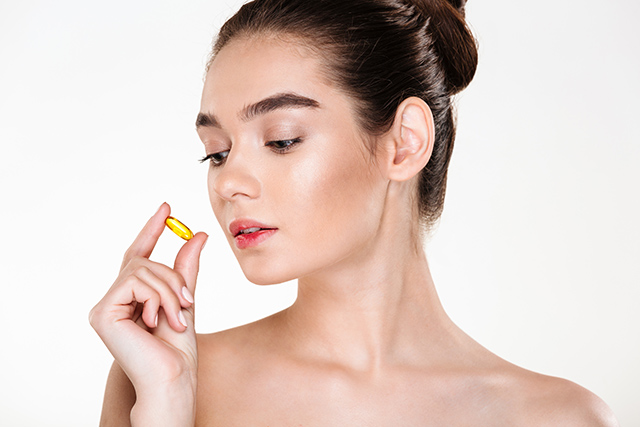 |
| Many OTC sleep aids only result in minor side effects when used short term. You should talk with your doctor before using any herbs or OTC medications for sleep. |
GABA
GABA (Gamma-aminobutyric acid) is a substance found in plants that can function as a neurotransmitter in the brain. It has been known to improve sleep and is being studied to determine if it can be safely used as a supplement.
L-Theanine
L-Theanine is an amino acid found in green tea that can improve sleep. It has been known to have various health benefits, but more studies are needed to establish its potential risks and benefits.
Glycine
Glycine has been shown to improve sleep in rats and humans through its effects on body temperature. The safety and effectiveness of this amino acid are still being studied.
Tryptophan
This amino acid is found in food. It's known to help the body produce melatonin. Food high in tryptophan like turkey can cause sleepiness.
Despite its reputation as a sleep aid, there is no strong evidence that tryptophan supplements can improve sleep.
Although tryptophan plays a crucial role in sleep, its effects may vary depending on the nutrients that are consumed. More research is needed to understand the role of tryptophan in sleep.
Learn more


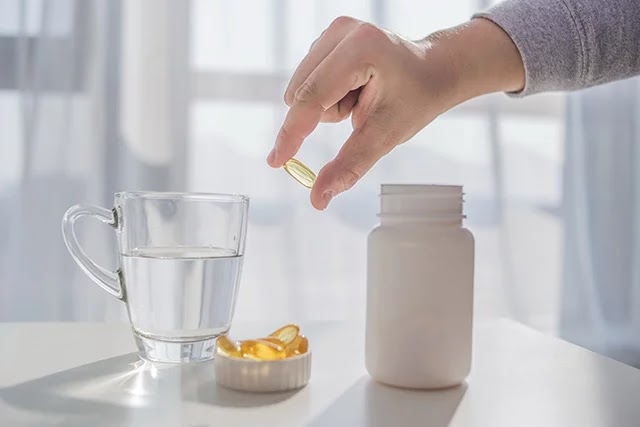







Post a Comment
0 Comments